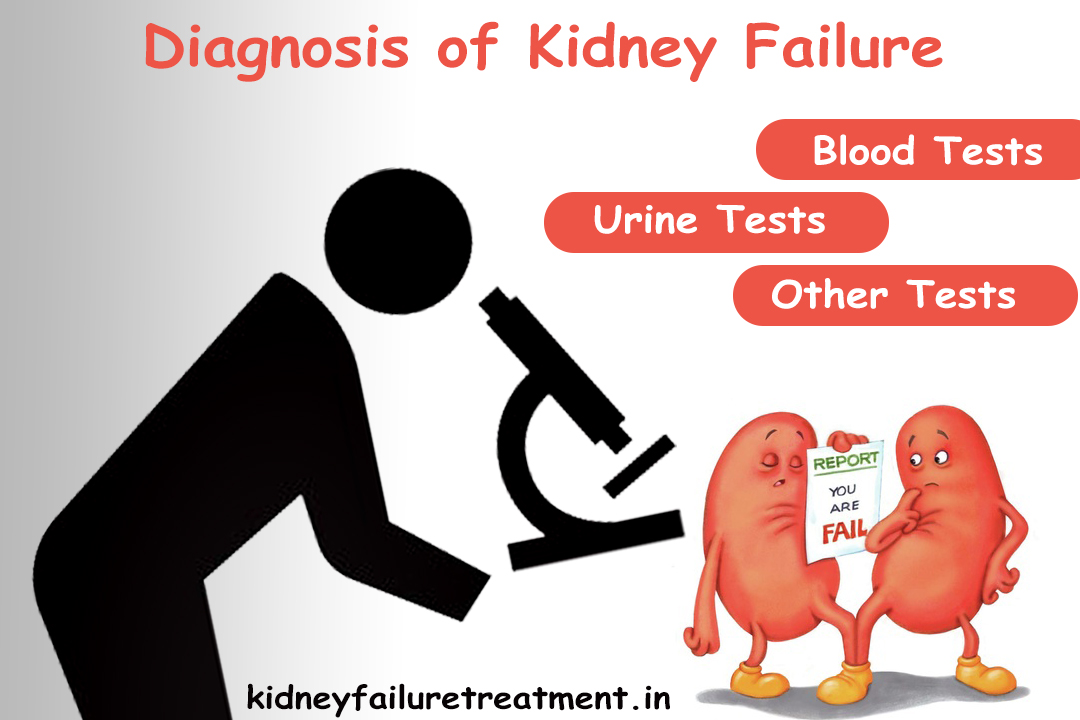Kidney Failure Treatments by Dr. Puneet Dhawan

Kidney Failure, also known as Renal Inefficiency, is a type of disorder where a person’s kidney suddenly loses their ability to remove toxic wastes from the blood. The deterioration of kidney functions that ensues may be acute or chronic and with varying degrees of severity. Kidney Failure Treatments
According to Ayurveda, kidneys are the roots of madovaha srotas (channel of fat tissue) and are made of rakta and medha dhatus. Any imbalance in these two creates a problem in kidneys, sometimes resulting in Kidney Failure as well.
Some common Reasons behind Kidney Failures
Kidney Failures might occur from the acute kidney situation, that incurs the kidney or from chronic kidney diseases that gradually makes the kidney dysfunctional.
In the case of Acute Renal Failure, the kidney stops being functional rapidly. Since most people have two kidneys, both need to be damaged, for complete Renal Failure to occur. Fortunately, if only one kidney fails, it can be replaced with another to have normal kidney function. In case both the Kidneys of a patient get damaged, it can be transplanted. The list of causes of kidney failure is often categorized on the basis of where the damage has occurred. Kidney Failure Treatments
Pre-renal Kidney Failure is caused due to a decrease in the blood supply to the kidneys. Here are a few examples of pre-renal kidney failure:
- Decreased blood volume due to blood loss.
- Dehydration
- Reduced intake of fluids
- Certain medications, for example, “diuretics”, that causes excessive loss of water from the body
- Abnormal blood flow to and from kidney due to obstructed artery or vein.
Post-renal Kidney failure is caused due to the factors that affect urine outflow. Few examples of post-renal kidney failure are:
- When the urinary bladder or ureters gets obstructed, it causes a back pressure as the kidneys continue to produce urine, and the obstruction acts like a dam causing the urine to back up in the kidneys and hence when the pressure increases high enough, the kidneys get damaged and shuts down.
- Prostate cancer blocks the urethra and prevents the bladder from emptying.
- Tumors obstruct the ureters in the abdomen
- Kidney Stones. Generally, kidney stones affect only one kidney and hence do not cause kidney failure. However, if there is only one kidney present, it may result in the failure of the remaining kidney.
Signs and Symptoms of Kidney Failure
Kidney Failure might not produce any symptoms initially. As the functions of kidney decreases, the symptoms are related to an inability to clear waste products from the body, promote red blood functions, balance electrolyte or regulate water, and promote red blood cells production. Kidney Failure Treatments
If ignored or untreated, the symptoms might become life-threatening, making the Kidney Failure Treatment very difficult to undergo. The symptoms include:
- Weakness and Lethargy
- Shortness of Breath
- Swelling
- Weakness due to anemia
- Congestive Heart Failure
- High Blood Potassium
- Rising urea levels in the blood
- Low Calcium blood levels
Diagnosis of Kidney Failure
The diagnosis of a Kidney Failure is the consequence of a person’s disease. The medical Care Team of Patients with chronic kidney disease due to High blood pressure or Diabetes or other related medical conditions, monitors kidney functions as a part of his or her routine long-term care plan. Kidney Failure Treatments
- Blood Tests: Blood tests such as BUN, Creatinine, and GFR are conducted to confirm the diagnosis of Kidney Failure.
- Urine Tests: Urine tests are ordered to measure the amount of protein, detect the presence of abnormal cells or measure the concentration of electrolytes.
- Other Tests: Other tests such as Abdominal Ultrasound or Kidney Biopsy are also conducted to Diagnose and then start the process of Kidney Failure Treatment.
Kidney Failure Treatment
As we know that Prevention is better than cure, so is the case with Kidney Failure Treatments as well. Chronic Diseases like Diabetes (Type 1 and 2) and High Blood Pressure are so devastating that they can even damage Kidneys along with other organs. Specific treatments depend on underlying diseases.
Once the Kidney Fails, the immediate goal should be to prevent further deterioration. If ignored completely, the kidneys may progress to complete failure. However, if the related causes are addressed and treated aggressively, kidney functions can be preserved. Kidney Failure Treatments
Here are certain Natural Kidney Failure Treatment Methods:
- Drink Plenty of Water: Water helps the body to remove toxic elements so that the kidney can function normally. One must consume at least 3 to 4 liters of water a day or tank on water-rich foods or fruits to ensure the safety of Kidneys.
- Keep a Check of Blood Sugar and Blood Pressure levels: Abnormal blood sugar and blood pressure are the major reasons behind Kidney Failure. For this, it is highly recommended to keep a check on these two major chronic problems.
- Follow a Proper Diet and Exercise: Following a proper diet and exercises regime is a must, in order to stop the condition from worsening.
- Perform Yoga: Yoga helps a lot in the proper functioning of the body. It helps cure many diseases including kidney failure. Several yoga poses as Kobra Pose or Warrior poses are very much beneficial in improving kidney functions.
- Reduce Smoking and Drinking: Smoking causes a condition that reduces the flow of water to kidneys which slowly and gradually damages it. Similarly, alcohols increase the number of toxins in the kidney, thereby damaging it. Hence it’s better to refrain from these.
- Avoid foods causing Dehydration: Reduced amount of water in the body might prove to be fatal in case of kidney failure. Hence it’s advisable to avoid foods that cause Dehydration.
Conclusion
The Kidney Failure Treatment can be done naturally. All that is required is, maintaining a healthy diet and avoiding mistakes that can further trigger the disease.
